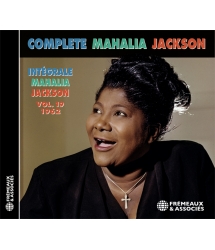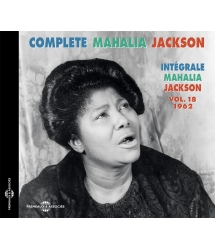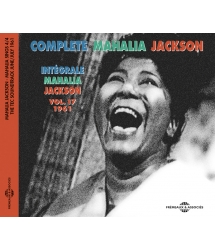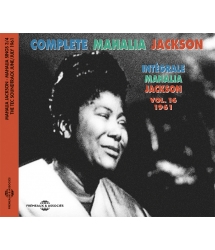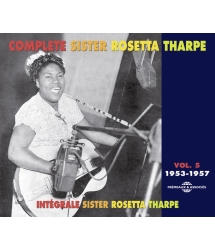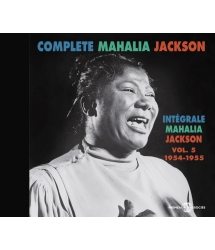- Notre Catalogue
- Philosophie
- Philosophes du XXème siècle et d'aujourd'hui
- Histoire de la philosophie (PUF)
- Contre-Histoire et Brève encyclopédie par Michel Onfray
- L'œuvre philosophique expliquée par Luc Ferry
- La pensée antique
- Les penseurs d'hier vus par les philosophes d'aujourd'hui
- Textes philosophiques historiques interprétés par de grands comédiens
- Histoire
- Livres
- Sciences Humaines
- Paroles historiques
- Livres audio & Littérature
- Notre Catalogue
- Jazz
- Blues - R'n'B - Soul - Gospel
- Rock - Country - Cajun
- Chanson française
- Musiques du monde
- Afrique
- France
- Québec / Canada
- Hawaï
- Antilles
- Caraïbes
- Cuba & Afro-cubain
- Mexique
- Amérique du Sud
- Tango
- Brésil
- Tzigane / Gypsy
- Fado / Portugal
- Flamenco / Espagne
- Yiddish / Israël
- Chine
- Tibet / Népal
- Asie
- Océan indien / Madagascar
- Japon
- Indonésie
- Océanie
- Inde
- Bangladesh
- URSS / Chants communistes
- Musiques du monde / Divers
- Musique classique
- Compositeurs - Musiques de film - B.O.
- Sons de la nature
- Notre Catalogue
- Jeunesse
- Philosophie
- Nouveautés
- Comment commander ?
- Recevoir le catalogue
- Manifeste
- Dictionnaire
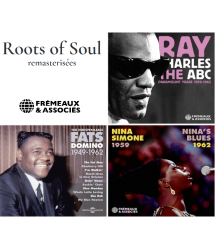

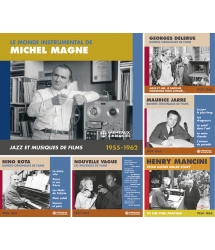








- Notre Catalogue
- Philosophie
- Philosophes du XXème siècle et d'aujourd'hui
- Histoire de la philosophie (PUF)
- Contre-Histoire et Brève encyclopédie par Michel Onfray
- L'œuvre philosophique expliquée par Luc Ferry
- La pensée antique
- Les penseurs d'hier vus par les philosophes d'aujourd'hui
- Textes philosophiques historiques interprétés par de grands comédiens
- Histoire
- Livres
- Sciences Humaines
- Paroles historiques
- Livres audio & Littérature
- Notre Catalogue
- Jazz
- Blues - R'n'B - Soul - Gospel
- Rock - Country - Cajun
- Chanson française
- Musiques du monde
- Afrique
- France
- Québec / Canada
- Hawaï
- Antilles
- Caraïbes
- Cuba & Afro-cubain
- Mexique
- Amérique du Sud
- Tango
- Brésil
- Tzigane / Gypsy
- Fado / Portugal
- Flamenco / Espagne
- Yiddish / Israël
- Chine
- Tibet / Népal
- Asie
- Océan indien / Madagascar
- Japon
- Indonésie
- Océanie
- Inde
- Bangladesh
- URSS / Chants communistes
- Musiques du monde / Divers
- Musique classique
- Compositeurs - Musiques de film - B.O.
- Sons de la nature
- Notre Catalogue
- Jeunesse
- Philosophie
- Nouveautés
- Comment commander ?
- Recevoir le catalogue
- Manifeste
- Dictionnaire
INTEGRALE 1955-1956
Ref.: FA1316
EAN : 3561302131627
Direction Artistique : JEAN BUZELIN
Label : Frémeaux & Associés
Durée totale de l'œuvre : 1 heures 5 minutes
Nbre. CD : 1
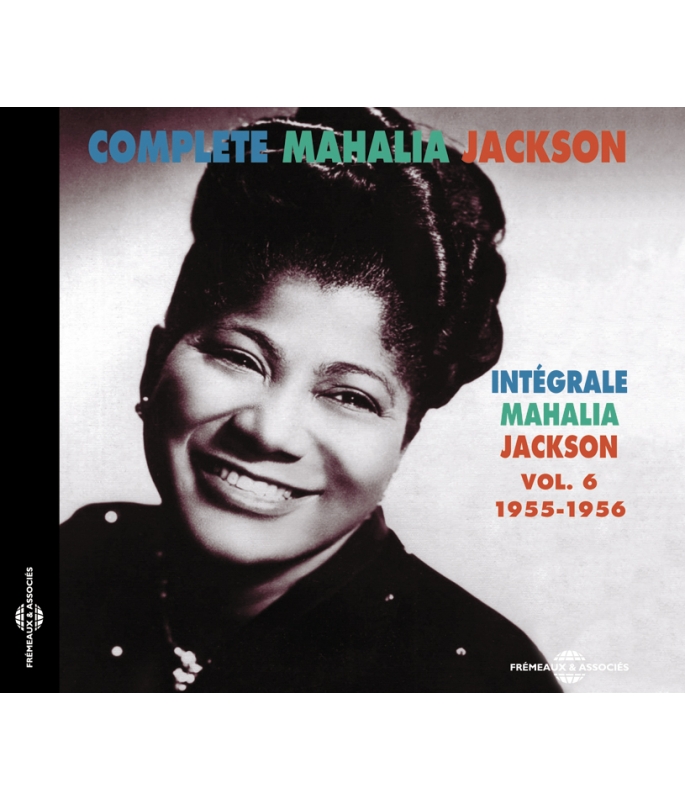
INTEGRALE 1955-1956
"La voix et la ferveur extraordinaires de Mahalia Jackson lui permettent de transcender tout ce qu’elle chante : les hymnes traditionnels comme les standards et les chants de Noël.
Ce 6ème volume de l'Intégrale Mahalia Jackson couvre les années 1955 et 1956." Jean Buzelin et Patrick Frémeaux
"Mahalia Jackson’s voice and extraordinary passion enabled her to transcend everything she sang, whether traditional hymns, standards or Christmas carols. This Complete Mahalia Jackson 6th volume presents years 1955 and 1956."
Jean Buzelin & Patrick Fremeaux
1955 (Columbia) : Silent Night, Holy Night • O Little Town Of Bethlehem • Go Tell It On The Mountain • White Christmas • I Wonder As I Wander • Sweet Little Jesus Boy • The Holy Babe • No Room At The Inn • Joy To The World • O Come All Ye Faithful • A Satisfied Mind • The Bible Tells Me So • I Asked The Lord • I’m Grateful • Down By The Riverside - Take 1 • Trouble In My Way - Take 1 • Without A Song • Joshua Fit The Battle Of Jericho • The Lord Is A Busy Man • 1956 (Columbia) : ‘Round The Rainbow.
Droits : Frémeaux& Associés

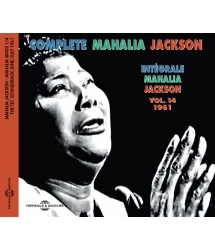
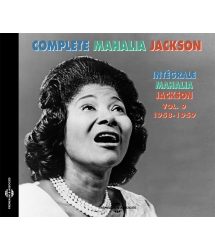
-
PisteTitreArtiste principalAuteurDuréeEnregistré en
-
1Silent Night Holy NightJackson Mahalia00:04:281955
-
2O Little Town Of BethlehemJackson Mahalia00:03:471955
-
3Go Tell It On The MontainJackson Mahalia00:03:101955
-
4White ChristmasJackson Mahalia00:03:361955
-
5I Wonder As I WanderJackson Mahalia00:04:361955
-
6Sweet Little Jesus BoyJackson Mahalia00:04:391955
-
7The Holy BabeJackson Mahalia00:02:451955
-
8No Room At The InnJackson Mahalia00:04:201955
-
9Joy To The WorldJackson Mahalia00:03:081955
-
10O Come All Ye FaithfulJackson Mahalia00:03:111955
-
11A Satisfied MindJackson Mahalia00:03:131955
-
12The Bible Tells Me SoJackson Mahalia00:02:041955
-
13I Asked The LordJackson Mahalia00:03:211955
-
14I'M GratefulJackson Mahalia00:03:581955
-
15Down By The RiversideJackson Mahalia00:02:211955
-
16Trouble In My WayJackson Mahalia00:02:411955
-
17Without A SongJackson Mahalia00:03:291955
-
18Joshua Fit The Battle Of JerichoJackson Mahalia00:02:081955
-
19The Lord Is A Busy ManJackson Mahalia00:01:541955
-
20There Is No Color Line Around The RainbowJackson Mahalia00:03:101955
COMPLETE MAHALIA JACKSON VOL.6
COMPLETE MAHALIA JACKSON CD COMPLETE MAHALIA JACKSON VOLUME 6 1955-1956, MAHALIA JACKSON © Frémeaux & Associés (frémeaux, frémaux, frémau, frémaud, frémault, frémo, frémont, fermeaux, fremeaux, fremaux, fremau, fremaud, fremault, fremo, fremont, CD audio, 78 tours, disques anciens, CD à acheter, écouter des vieux enregistrements, albums, rééditions, anthologies ou intégrales sont disponibles sous forme de CD et par téléchargement.)
INTÉGRALE MAHALIA JACKSON VOL. 6 1955-1956
Nous avons quitté Mahalia Jackson, à la fin du volume 5 de notre intégrale, pour ainsi dire entre deux portes, au soir du 1er juin 1955, après une séance de studio pendant laquelle elle venait d’enregistrer trois morceaux avec le soutien d’une grande formation dirigée par le chef d’orchestre Ray Ellis. Retrouvons-là, la veille pour une première série de chants destinés à composer un album pour Noël. À côté du célèbre Silent Night, qu’elle a déjà enregistré pour Apollo en 1950, et qui a fini par être assimilé à un “vrai” spiritual grâce à quelques grandes voix noires qui ont donné quelque poids à cette Douce nuit, Mahalia doit se coltiner quelques mélodies qu’adorent les Américains. On y trouve l’inévitable White Christmas créé par Bing Crosby(1), O Little Town Of Bethlehem, Joy To The World, l’hymne latin Adeste Fideles, etc, et autres rengaines familiales que l’on chante autour du sapin ! Il est toutefois curieux que Mahalia Jackson, qui a toujours refusé de chanter un répertoire de jazz, accepte de se plier aux exigences de ses producteurs en interprétant des chansons qui n’ont rien à voir avec la tradition afro-américaine. À partir du moment où il s’agit de chansons (vaguement) religieuses, doit-elle accepter de tout chanter ? Évidemment, pour ajouter au côté grandiose de l’opération, des arrangements ont été commandés à Sid Bass qui, lors de la première séance, dirige, sur deux morceaux, un grand orchestre de studio avec une large section de cordes. Par chance, un petit espace de liberté à été laissé à Mahalia qui en a profité, en l’absence de l’orchestre, pour reprendre notamment un vieux negro spiritual traditionnel, Go Tell It On The Mountain (également enregistré pour Apollo en 1950), donnant libre cours à son grand talent, sa ferveur et sa foi authentique. Mahalia revient le surlendemain pour terminer l’enregistrement de ses chants de Noël. Heureusement, la pianiste Mildred Falls et l’organiste Ralph Jones ont repris leur place derrière leurs claviers respectifs, et l’on voit poindre la silhouette inattendue de Lionel Hampton soi-même derrière son vibraphone. Foin de cordes, de cuivres et de bois, mais une chorale destinée probablement à accentuer l’aspect confraternel de la Fête de la Nativité. Bon. Encore une fois, l’éclectisme est de rigueur. Mahalia chante Joy To The World, composé par Haendel sur le psaume 98, et recueilli par le Dr. Isaac Watts dans son “Hymns & Spiritual Songs” publié en Amérique en 1739 et qui, depuis plus de deux siècles, constitue la base du répertoire des spirituals chez les Blancs comme chez les Noirs. Elle interprète également l’hymne latin Adeste Fideles, que tout petit chanteur, avec ou sans croix de bois, a chanté durant sa jeunesse ; écrit en 1740 par John Francis Wade, il a été traduit en anglais par Frederick Oakley sous le titre O Come All Ye Faithful. Trois chants cependant peuvent se rattacher à la tradition afro-américaine : Sweet Little Jesus Boy, œuvre de Robert McGimsey, l’auteur du célèbre Shadrack, le grand succès du Golden Gate Quartet(2), The Holy Babe, adapté du negro spiritual traditionnel Go Where I Send Thee, et No Room At The Inn. Deux mois plus tard, Mahalia Jackson enregistre exceptionnellement dans sa ville de Chicago, la Cité des Vents qu’elle n’a jamais quitté en dépit des appels de New York, la capitale de l’industrie musicale, et malgré les vexations racistes. Par exemple quand elle “trouva difficile d’admettre que des Blancs qui étaient venus l’écouter en grand nombre, autant aux Etats-Unis qu’à l’étranger, pouvaient se sentir plus ou moins solidaires de ceux qui, en 1955, avaient criblé de balles ses vitres, lorsqu’elle acheta une maison dans un quartier de Chicago, occupé auparavant par des Blancs”(3). En compagnie de Mildred Falls, de Ralph Jones et d’une section rythmique locale, elle retrouve les Jack Halloran Singers qui ont participé à ses émissions de radio. Si ce quartette vocal blanc est, professionnellement, au-delà de toute critique, qu’il nous soit permis de regretter que l’on n’ait pas songé, ou voulu, faire appel à un vrai quartette de gospel pour lui donner la réplique, comme autrefois les Selah Singers ou les Southern Harmonaires. A Satisfied Mind/The Bible Tells Me So font l’objet d’un nouveau single (4-40554), tandis que The Lord’s Prayer, rejeté, sera réenregistré l’année suivante.
Après sans doute quelques obligations et tournées harassantes, Mahalia retombe malade et doit être hospitalisée le 10 septembre. Trois semaines plus tard, la chanteuse est sur pieds pour retourner en studio. Et cette fois, changement de décor, de répertoire et de musiciens puisqu’une section rythmique d’excellents jazzmen se joint à la paire Mildred Falls-Ralph Jones. Dans cet environnement stimulant, Mahalia Jackson laisse libre cours à son swing naturel, à son allant et à sa générosité, en recréant quelques vieux negro spirituals connus de tous comme Down By The Riverside et Joshua Fit The Battle Of Jericho qu’elle n’avait pas encore gravé sur disque, ou encore le superbe Trouble In My way composé par Roberta Martin (1907-1969). Grande pionnière du gospel associée autrefois à Thomas A. Dorsey, elle venait d’enregistrer ce titre sur Apollo avec ses Roberta Martin Singers et son chanteur soliste Norsalus McKissick. Un standard joliment interprété, Without A Song, figure également au programme, de même que I’m Grateful, non publié à l’époque, et qui contient une formidable partie de piano de Mildred Falls. Quelques mois plus tard, Mahalia donnera d’autres versions de quelques-uns de ces titres, ainsi que son medley réunissant Summertime et Sometimes I Feel Like A Motherless Child(4) dont la mouture enregistrée ce jour n’a pas dû suffisamment convaincre. Par contre, elle demande en vain d’enregistrer Precious Lord, Take My Hand, la célèbre et bouleversante composition de Thomas A. Dorsey — notre Irving Berlin, comme elle l’appelle — qu’elle chante depuis toujours et dont elle n’a pas encore laissé la trace dans la cire ou le vinyle. Elle devra encore patienter pour interpréter, derrière les micros, “ce chant qui, pour elle, signifie réellement quelque chose pour les gens qui ont été opprimés”(5). Quelques jours après, la chanteuse se retrouve au studio en tout autre compagnie, puisque le chef Sid Bass est de retour avec un orchestre jazzy. Des quatre titres engrangés ce jour-là, seul The Lord Is A Busy Man, imposé comme il se doit par Mitch Miller, sera publié et rejoindra You’re Not Living In Vain sur un 45 tours (4-40610). Par chance, Down By The Riverside et Trouble In My way, essayés dans ce contexte, ne seront pas retenus. Un petit examen des 45 tours de Mahalia Jackson publiés pour le marché pop permet de constater qu’ils disparaîtront du catalogue et que la plupart des titres de ces disques “commerciaux” ne seront pas repris en 33 tours ! De là à conclure qu’ils n’étaient destinés qu’à la consommation immédiate…
Avant les fêtes de fin d’année, le fameux album de chants pour Noël paraît enfin. Il est intitulé d’abord “Sweet Little Jesus Boy”(Columbia CL 702) puis réédité, en Europe, sous le titre “Joy To The World“. Apprécié par les uns, il est critiqué par les autres qui le considèrent comme un disque de jazz ! Chacun jugera à l’écoute, un demi-siècle plus tard, du degré de “jazzité” de ces interprétations. Mais tous s’accorderont pour constater que, à un ou deux morceaux près, elles n’ont qu’un lointain rapport avec les negro spirituals et les gospel songs authentiques. Mais il y la voix, évidemment… Au début de l’année 1956, Mahalia Jackson se produit au Massey Hall de Toronto puis effectue plusieurs tournées dans le centre et le sud du pays, en compagnie notamment de son vieux partenaire, le chanteur et pianiste Robert Anderson. Ses prestations scéniques s’accompagnent souvent d’invitations aux chaînes de télévision. Ces émissions permettront par ailleurs à de nombreux Blancs du Sud, en général pas très accueillants envers les artistes de couleur, à commencer à s’intéresser au “phénomène” Mahalia Jackson. Le 7 mars, la chanteuse, de retour à New York, enregistre quatre morceaux qui seront rejetés par les producteurs et réenregistrés trois semaines plus tard. Deux des trois titres tournés le 19 subissent le même sort provisoire. Seul ‘Round The Rainbow sera conservé. Quelques jours plus tard, le 23 mars, Mahalia est invitée à la Maison-Blanche pour l’anniversaire de Madame la Présidente. Le Général républicain Eisenhower a pris ses fonctions depuis peu. Qu’à cela ne tienne, la chanteuse se rendra ensuite, en compagnie du révérend C.L. Franklin (le père d’Aretha), à la Convention nationale démocrate où elle retrouvera le Dr. Martin Luther King, autrefois rencontré à Birmingham, en Alabama. En ce milieu des années 50, Mahalia Jackson est devenue l’une des grandes figures de l’Amérique noire, et même des Etats-Unis en général. Sans aucun doute, au sein de l’establishment et de la société, majoritairement blanche, elle s’est présentement installée comme l’une des ambassadrices de sa communauté et de la culture noire en général. Grâce à sa voix, sa présence, sa personnalité et son immense talent qui transcende tous les genres, Mahalia Jackson a largement mérité la place qu’elle occupe aujourd’hui, place si chèrement et durement payée. Son chemin n’est pas terminé, loin de là…
Jean Buzelin
Auteur de Negro Spirituals et Gospel Songs, Chants d’espoir et de liberté (Ed. du Layeur/Notre Histoire, Paris 1998).
© 2008 FRÉMEAUX & ASSOCIÉS
Notes :
1) Sister Rosetta Tharpe avait également été “obligée“ d’enregistrer Silent Night et White Christmas quelques années auparavant ; voir Complete Sister Rosetta Tharpe Vol.3 (FA 1303).
2) Voir Golden Gate Quartet Vol.2 (FA 5093).
3) In Phyl Garland : Les Dieux du Soul (Buchet/Chastel, Paris 1972), traduit par Yvonne et Maurice Cullaz.
4) George Gershwin a repris la trame harmonique de Sometimes I Feel pour écrire Summertime, l’un des airs majeurs de « Porgy and Bess ».
5) In Mahalia de Laurraine Goreau.
Ouvrages consultés :
Laurraine Goreau : Mahalia (Lion Pub., UK 1976 – 2e édition)
Jules Schwerin : God To Tell It : Mahalia Jackson (Oxford University Press, 1992)
Anthony Heilbut : The Gospel Sound (Limelight Ed., NYC 1992 – 4e édition)
Nous remercions Friedrich Mühlöcker, Étienne Peltier et Robert Sacré pour le prêt de certains disques rares de leur collection, ainsi que Jean-Paul Guiter, Robert Laughton et Gayle Wald.
Photos & collections : X (D.R.)
ENGLISH NOTES
At the end of volume 5 of our complete series we left Mahalia Jackson on 1 June 1955 in the evening at, as it were, a turning point in her career, after a studio session during which she had just recorded three titles, including two with the backing of a big band conducted by band leader Ray Ellis. We find her now the previous evening for the first session of songs destined to form a Christmas album. In addition to the well known Silent Night which she had already recorded for Apollo in 1950 and that was now considered a true spiritual thanks to several great interpretations by black artistes, Mahalia was landed with some tunes beloved by the American public: the inevitable White Christmas created by Bing Crosby(1), O Little Town Of Bethlehem, Joy To The World, the Latin carol Adeste Fideles and other hackneyed family favourites always sung around the Christmas tree! However, it is curious that Mahalia Jackson, who had always refused to sing a jazz repertoire, accepted the demands of her producers by interpreting songs that had nothing to do with the Afro-American tradition. When it was a question of even faintly religious songs, was she forced to agree to sing everything? Obviously to add a certain dignity to the whole undertaking, the arrangements were by Sid Bass who, during the first session, on two titles, conducted a big studio band with a large string section. By chance, a tiny bit of freedom was left for Mahalia who took the opportunity, in the absence of the big band, to reprise notably the old traditional Negro spiritual Go Tell It On The Mountain (also recorded for Apollo in 1950), giving free rein to her outstanding talent, her fervour and her true beliefs.
Mahalia returned two days later to finish her recordings of Christmas carols. Fortunately, pianist Mildred Falls and organist Ralph Jones had taken up their places at their respective keyboards and, looming in the background, there was the unexpected silhouette of Lionel Hampton himself behind his vibraphone. No more strings, brass or woodwinds but a choir probably intended to underline the all-embracing aspect of Christmas. Good. The choice of titles is once more wide ranging. Mahalia sings Joy To The World, composed by Handel based on Psalm 98 and included by Dr. Isaac Watts in his “Hymns & Spiritual Songs” published in America in 1739 and which, for over two centuries, has formed the basis of the repertoire of spirituals for white Americans as well as black. She also interprets the Latin hymn Adeste Fideles that all young children have sung in their youth; John Francis Wade wrote the words and music in 1740 and it was translated into English by Frederick Oakley under the title O Come All Ye Faithful. However, three songs are part of the Afro-American tradition: Sweet Little Jesus Boy, a work by Robert McGimsey, composer of the famous Shadrack; a big hit for the Golden Gate Quartet(2); The Holy Babe, an adaptation of the traditional Negro spiritual Go Where I Send Thee, and No Room At The Inn. Two months later Mahalia recorded exceptionally in her home town of Chicago, the Windy City that she had never left, in spite of repeated appeals from New York, the capital of the music industry, and racial problems. For example she “found it hard to accept that some of the white men who flocked to hear her, in the States as well as abroad, could more or less support those who, in 1955, riddled her window panes with bullet holes when she bought a house in a district of Chicago previously occupied by whites”(3). Accompanied by Mildred Falls, Ralph Jones and a local rhythm section, she teamed up again with the Jack Halloran Singers who had taken part in her radio shows. While this white vocal quartet is professionally above criticism, it is nevertheless regrettable that no-one thought (or wanted to?), of calling on a true gospel quartet to support her, as the Selah Singers or the Southern Harmonaires had once done. A Satisfied Mind/The Bible Tells Me So were the subject of a new single (4-40554), while The Lord’s Prayer, rejected, would be recorded the following year. After some doubtless exhausting engagements and tours, Mahalia fell ill again and had to be hospitalised on the 10 September.
Three weeks later the singer was fit enough to return to the studio. And, this time, there was a change of setting, repertoire and musicians as a rhythm section of excellent jazzmen joined the Mildred Falls/Ralph Jones duo. In this stimulating environment Mahalia Jackson gave free rein to her natural swing, to her drive and generosity of spirit, by recreating several old familiar Negro spirituals such as Down By The Riverside and Joshua Fit The Battle Of Jericho that she had not yet recorded, plus the superb Trouble In My Way composed by Roberta Martin (1907-1969). This latter great Gospel pioneer, who had once worked with Thomas A. Dorsey, had just recorded the title on Apollo with her Roberta Martin Singers and her soloist singer Norsalus McKissick. A nicely interpreted standard, Without A Song, was also part of the programme as was I’m Grateful, unissued at the time and that contains a wonderful piano part from Mildred Falls. A few months later Mahalia did different versions of some of these titles, as well as her medley combining Summertime and Sometimes I Feel Like A Motherless Child(4) of which the remake recorded that day could not have been sufficiently convincing. On the other hand, she asked in vain to record Precious Lord, Take My Hand, Thomas A. Dorsey’s deeply moving composition - our Irving Berlin as she called him - that she had always sung and had still never recorded. She had to wait some time longer before being able to cut “this song that, for her, really represented something for all the people who were oppressed”(5). A few days later the singer found herself back in the studio in quite different company for bandleader Sid Bass was back with a jazzy orchestra. Of the four titles stored up on this date only The Lord Is A Busy Man, insisted on of course by Mitch Miller, would be issued as a 45 (4-40610). By chance Down By The Riverside and Trouble In My Way, also tried out in this context, were not kept. A brief examination of Mahalia Jackson’s 45s issued for the pop market reveals that they disappeared from the catalogue and that most of these commercial records were not reissued as 33s! One can only conclude that they were intended for immediate consumption only…
In time for the festive season, the famous album of Christmas carols finally appeared. It was originally entitled “Sweet Little Jesus Boy” (Columbia CL702) then reissued in Europe under the title “Joy To The World”. Appreciated by some, it was criticised by others who considered it a jazz record! Listeners can judge for themselves the degree of jazziness in these interpretations. However, all agree that, apart from a couple of pieces, they have only a vague connection with true Negro spirituals and gospel songs. Of course, there is always the voice… At the beginning of 1956 Mahalia Jackson appeared at the Massey Hall in Toronto before undertaking several tours in the mid and southern states, accompanied notably by her old partner, singer and pianist Robert Anderson. Her stage appearances often resulted in invitations from TV stations. Moreover, these broadcasts enabled numerous white Southerners, generally not very open to coloured artistes, to become interested in the Mahalia Jackson “phenomenon”. On 7 March, back in New York, she recorded four titles that were rejected by the producers and recorded again three weeks later. Two of these three titles cut on the 19 suffered the same fate. Only ‘Round The Rainbow was retained. A few days later, on the 23 March, Mahalia was invited to the White House for the First Lady’s birthday. Republican General Eisenhower had not been in office long. So that nothing might be read into this the singer, accompanied by the Reverend C.L. Franklin (Aretha’s father), then went to the national Democratic convention where she met Dr. Martin Luther King whom she had already met in Birmingham, Alabama. By the mid-50s Mahalia Jackson had become one of the great figures of black America, even of the United States in general. There is no doubt that she was now firmly installed within the white establishment as an ambassadress of her community and back people overall. Thanks to her voice, her presence, her personality and immense talent which transcends all genres, Mahalia Jackson fully deserves the place she occupies today, a place so dearly paid for. Her journey is still not finished, not by a long way…
Adapted from the French text of Jean BUZELIN by Joyce WATERHOUSE
© 2008 FRÉMEAUX & ASSOCIÉS
Notes:
1) Sister Rosetta Tharpe had also been “obliged” to record Silent Night and White Christmas a few years previously: see Complete Sister Rosetta Tharpe Vol. 3 (FA 1303).
2) See Golden Gate Quartet Vol. 2 (FA 5093).
3) In Phyl Garland: Les Dieux du Soul (The Sound of Soul) (Buchet/Chastel, Paris 1972).
4) George Gershwin took the harmonic theme of Sometimes I Feel Like A Motherless Child when he wrote Summertime, one of the great tunes from “Porgy and Bess”.
5) In Mahalia by Laurraine Goreau.
Works consulted:
Laurraine Goreau: Mahalia (Lion Pub. UK 1976 – 2nd edition).
Jules Schwerin: God To Tell It: Mahalia Jackson (O.U.P., 1992).
Anthony Heilbut: The Gospel Sound (Limelight Ed., NYC 1992 – 4th edition)
Grateful thanks to Friedrich Mühlöcker, Etienne Peltier and Robert Sacré for the loan of certain rare records from their collections, and Jean-Paul Guiter, Robert Laughton and Gayle Wald.
Photos & collections: X (D.R.)
discographie
01. SILENT NIGHT, HOLY NIGHT (F. Grüber - Mohr - arr. M. Jackson) CO56462
02. O LITTLE TOWN OF BETHLEHEM (L. Phillips Brooks - Redner) CO no mx
03. GO TELL IT ON THE MOUNTAIN (Trad.) CO no mx
04. WHITE CHRISTMAS (I. Berlin) CO no mx
05. I WONDER AS I WANDER (L. Berio) CO no mx
06. SWEET LITTLE JESUS BOY (R. McGimsey) CO59085
07. THE HOLY BABE (Trad. - arr. M. Jackson) CO no mx
08. NO ROOM AT THE INN (Stoess - Sterrett) CO no mx
09. JOY TO THE WORLD (G.F. Haendel) CO no mx
10. O COME ALL YE FAITHFUL (J.F. Wade - transcription F. Oakley - Reading) CO no mx
11. A SATISFIED MIND (R. Hayes - J. Rhodes) CO5588
12. THE BIBLE TELLS ME SO (D.R.) CO5589
13. I ASKED THE LORD (J. Lange - Duncan) CO53947-1
14. I’M GRATEFUL (Trad.) CO53948
15. DOWN BY THE RIVERSIDE (Trad.) CO53949-1
16. TROUBLE IN MY WAY (Kenwood - R. Martin) CO53950-1
17. WITHOUT A SONG (W. Rose - E. Ellison -V. Youmans) CO53951
18. JOSHUA FIT THE BATTLE OF JERICHO (Trad. - arr. M. Jackson) CO53952
19. THE LORD IS A BUSY MAN (D.R.) CO53946-2
20. (THERE IS NO COLOR LINE) AROUND THE RAINBOW (D.R.) CO55823
Mahalia Jackson (vocal) & The Falls-Jones Ensemble : (1-5) Mildred Falls (piano), Ralph Jones (organ), Milton Hinton (bass), Buster “Elden“ Bailey (vibes on 1, 3, 4, chimes on 1, 4), Orchestra dir. by Sid Bass (on 2, 5). New York, 31/05/1955. (6-10) Mildred Falls (piano), Ralph Jones (organ), poss. Milton Hilton (bass), Lionel Hampton (vibes on 7, 8, 10), Robert “Bob“ Prince (vibes on 6, 9, chimes on 9, 10), unknown choir (on 6, 9, 10). New York City, 02/06/1955. (11-12) Mildred Falls (piano), Ralph Jones (organ), Earl Backus (guitar), Duane Swalley (bass), Frank Rullo (drums), The Jack Halloran Singers (vocal group). Chicago, IL, 04/08/1955. (13-18) Mildred Falls (piano), Ralph Jones (organ, except on 14), Clifton “Skeeter“ Best (guitar, except on 14, 17), Walter Page (bass, except on 14, 17), Gordon “Specs“ Powell (drums, except on 17), unknown vocal group on 13. New York City, 03/11/1955. (19) Orchestra dir. by Sid Bass : Bert Pederson, Bernie Privin, Jimmy Nottingham (trumpet), Jack Satterfield, Frank Saracco, Al Godlis (trombone), Sam Musiker, Carl Prage, Philip Bodner (saxes), unknown (piano)(guitar)(bass)(chimes), Philip Kraus (drums), unknown choir. New York City, 07/11/1955. (20) The Falls-Jones Ensemble : Mildred Falls (piano), Ralph Jones (organ), Milton Hinton (bass), Gus Johnson (drums). New York City, 19/03/1956.
